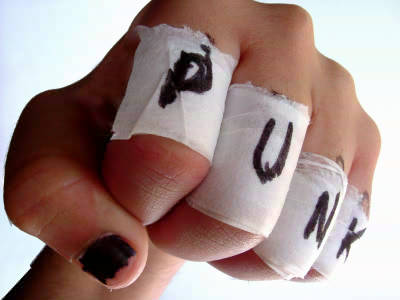What are the effects of 'bruxism' and 'clenching teeth' on daily life? Experts also teach countermeasures

Why do I grind my teeth and clench my jaw? And what can I do about it?
https://theconversation.com/why-do-i-grind-my-teeth-and-clench-my-jaw-and-what-can-i-do-about-it-172298
The upper and lower teeth of a human are designed to engage only when needed. Basically, the teeth are engaged only when chewing food, so the upper and lower teeth overlap only for a small part of the day. So basically, whether you have your lips closed or not, your upper and lower teeth 'must be separated,' Howes said.
Excessive brushing and clenching can damage your teeth and damage your jaw muscles. In particular, the temporomandibular joint, which attaches the lower jaw to the skull, contains a disk to control the movement of the joint, which can be distorted or displaced, causing the joint to make a clicking sound or cause pain. It seems to do. In other words, unnecessary clenching and bruxism of teeth can lead to damage to the temporomandibular joint and surrounding muscles.

One of the main causes of this pain around the jaw is stress. Holden says he always asks about stress for patients who complain of pain in the temporomandibular joints and surrounding muscles, or who have signs of clenching or bruxism.
Patients often say, 'No, I'm not stressed at all.' However, when actually conducting an interview survey, it will soon become clear what the patient is feeling stressed. 'Starting a new job, trying new things with your family, and dealing with changes in your life are all more stressful than we think,' said Holden. He points out that unknowingly stress in life leads to bruxism, clenching teeth, and even the resulting pain.
There are various theories about how to relieve stress, but it has been scientifically proven that contacting animals and hugging people are effective.

Research results show that hugging someone reduces stress, but only by consensus-GIGAZINE

The first step in dealing with pain around the jaw is to be aware that you are bruxing or clenching your teeth and to be conscious of voluntarily stopping this. Dentists are trained to check the health of their jaw joints and muscles that help them chew, so dental examinations are a 'great opportunity' to notice bruxism and clenching teeth. Signs of bruxism and clenching of teeth include 'cracked teeth and fillings,' 'weared teeth,' and 'pain in the jaw, head, and neck muscles.'
Bruxism during sleep can lead to 'dental pain,' 'temporomandibular joint pain,' and 'head and neck muscle pain.' The easiest way to deal with this is to use a guard called a 'bite guard ' to reduce the strain on your teeth. If you want to introduce a bite guard, 'consult your dentist,' says Howes and Holden.
They also advise 'avoid chewing gum for long periods of time' for those who have jaw pain when clenching or bruxing their teeth. Eating sugar-free gum reduces the risk of tooth decay, but caution is required as it can lead to jaw pain.

Related Posts:
in Science, Posted by logu_ii







